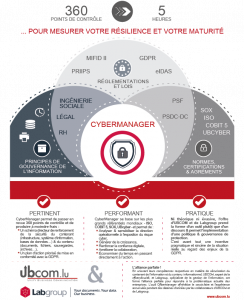Article Paperjam – « Transformation digitale et artisanat »
La numérisation engendre l’émergence de nouveaux modèles d’affaires, mais a également des implications profondes au niveau de l’organisation du travail et de la manière de travailler. L’artisanat se positionne pour saisir les opportunités qui découlent de ces évolutions.
La Cour de justice de l’UE a statué dans un arrêt1 récent que la plateforme électronique Uber, qui développe et exploite des applications mobiles de mise en contact d’utilisateurs avec des chauffeurs non professionnels, doit être considérée comme un prestataire de services dans le domaine des transports et non comme un simple intermédiaire ICT. Concrètement, dans l’UE, Uber doit donc être soumis aux mêmes réglementations que celles imposées aux taxis, qui représentent au Luxembourg une activité réglementée selon le droit d’établissement en vigueur.
Cette décision de la CJUE, bien que favorable pour le secteur des taxis, ne pourra cependant pas défaire la soi-disant «ubérisation» graduelle des marchés traditionnels: la transformation via des outils numériques (plateformes, applications, etc.) va gagner en importance et les acteurs économiques non issus de secteurs traditionnels qui gèrent ces outils risquent de devenir de nouveaux intermédiaires entre consommateurs et prestataires artisanaux de service. Chaque secteur devra désormais se positionner face à ces développements, et l’artisanat demande à ce que les mêmes standards s’appliquent tant aux activités réelles qu’aux activités virtuelles (sécurité sociale, droit du travail, droit d’établissement, sécurité & santé, fiscalité, etc.).
Par ailleurs, il est un fait que les besoins des clients ont également évolué avec l’émergence de nouvelles plateformes: ils s’attendent désormais à des services très personnalisés et interactifs, disponibles à tout moment et à coûts réduits. Cette tendance va à l’encontre du désir souvent exprimé des mêmes clients souhaitant acheter localement, notamment en vue d’éviter des chemins de transport excessifs des produits. Face à ces évolutions, les entreprises artisanales sont bien placées pour répondre aux nouvelles demandes, à condition d’adapter leurs modèles d’affaires: elles devront davantage se concentrer sur la prestation d’un service sur mesure, tout en satisfaisant un besoin d’information et de conseil à haute valeur ajoutée auprès des clients.
La numérisation n’engendre cependant pas seulement l’émergence de nouveaux modèles d’affaires. Elle a des implications profondes aussi bien au niveau de l’organisation du travail (p. ex. applications d’enregistrement des données sur chantier, géolocalisation, vente en ligne), des modes de communication (p. ex. réseaux sociaux), que de la manière de travailler (p. ex. connexion aux données professionnelles sans présence physique). Les opportunités en découlant seront considérables, que ce soit au niveau de la communication externe, de la création de nouveaux produits, de la personnalisation des services ou de l’interconnexion des données.
Pour les entreprises artisanales, il sera donc primordial de défendre à l’avenir leur position concurrentielle face à des entrants «technologiques» du marché, ayant intégré le digital dès leur création et provenant d’horizons n’ayant aucun rapport avec les activités traditionnelles. L’artisanat devra évoluer en proposant des produits et services de haute qualité sur la base de processus digitaux de production et d’organisation gagnant en souplesse et en réactivité. Sachant que l’artisanat a dans le passé toujours bien intégré les innovations technologiques, en adoptant une nouvelle «façon de penser», il a tout intérêt à augmenter sa performance et à rester compétitif par l’adoption de nouvelles stratégies, de nouveaux outils, tout en restant orienté vers l’avenir.
Pour accompagner les entreprises artisanales dans leur transformation digitale, la Chambre des métiers a mis en place le service «eHandwierk», qui vise essentiellement à offrir une guidance et une orientation concrète aux entreprises vis-à-vis des évolutions du numérique. Il ambitionne de les sensibiliser aux enjeux de la digitalisation et de les mettre en relation avec les acteurs spécialisés dans ce domaine. Le nouveau brevet de maîtrise de la Chambre des métiers2 intègre systématiquement les opportunités et les notions d’e-business, de digitalisation des processus de production et de sensibilisation générale quant aux outils et applications digitales.
Le 6 juin 2018, la Chambre des métiers organise la nouvelle édition de sa «Journée eHandwierk», l’événement phare de l’artisanat numérique au Luxembourg. À ne pas manquer!
[1] Affaire C-434/15 du 20 décembre 2017
[2] Premier nouveau brevet de maîtrise «Artisan en alimentation» en automne 2017
Pour consulter l’article complet, veuillez suivre le lien: http://paperjam.lu/news/transformation-digitale-et-artisanat?
@Copyright: Paperjam



